#afro hispanic
Explore tagged Tumblr posts
Text
Just wanted to clear up some confusion with Asha from Wish, since I’ve been seeing it a lot. She’s not Afro-Latina but Afro Hispanic.

I’m assuming the media gets it wrong because over in the west (USA, South, and Latin America) a lot of the Hispanic people here are also Latino, so we tend use the terms interchangeably although they are completely different things. But have an overlap in the west due to Spanish colonization.
Here’s a visual if anyone wants it:

For anyone who don’t know, Spain and Portugal occupy the Iberian Peninsula, which is separated at its southern tip from North Africa by only a narrow strait situated at the juncture of the Mediterranean and the Atlantic.
I’m assuming since the name of Asha’s kingdom is Rosas, it’s closer to Spain. Also it wouldn’t make since to be associating her with being Latino( As I’ve already said a lot of people use Latino and Hispanic interchangeably due to the large overlap in the west) if she was assumed to be Portuguese or connected to Portugal in any way.
TLDR; Asha is Afro Hispanic, NOT Afro-Latina.
#wish asha#disney wish#afro latina#afro hispanic#i just wanted to share this because I saw a lot of people getting it wrong#disney#asha probably has some North African genes as well considering the Iberian peninsula#I do realize people may be saying Asha is Afro latina because her voice actor is Afro Latina#black girl representation#disney princess#asha wish
136 notes
·
View notes
Text
Black culture in Bluefields, Nicaragua! ✊🏿🇳🇮
#HappyHispanicHeritageMonth
#black people#black culture#my culture#bluefields nicaragua#nicaragua#afro nicaraguans#black nicarguans#afro latinos#nicaraguans#hispanic heritage#nicaribbean#caribbean#creole#latino#latinx#central america#rondon#nicaraguan cuisine#food#food culture#video#1980s#80s#sbrown82
57 notes
·
View notes
Text
Tiktok saying they love latino jayce then saying “yeah his parents are from spain” like hold on. Thats not…yeah you mean he’s hispanic. Like latino kinda needs the whole latin america marker that Spaniards dont have man.
#fanfiction#ao3#viktor arcane#arcane#jayce talis#jayce arcane#jayvik#latino jayce#like thats pookie#local afro-latina irritated as always#yeah theres racial politics of latinos#but the consensus is that spanish are always hispanic#lmfao
44 notes
·
View notes
Text


This is my official coming out post. I already came out before but I'm doing this again:
I'm Greyrose (aka greysexual and greyromantic or grey aroace). I've been thinking about this for quite some time and I've realized that I feel attraction to people, but VERY rarely. There's also the fact that I haven't had a "crush" on anyone since 5th grade so yeah. I feel pretty comfortable using the label as it describes how I feel so yeah, that's really it.
I'd also like to take this chance to say this: afro latino asexuals, you are valid. Afro latino aromantics, you guys are valid. Afro latino aroace individuals and afro latino people who are on the acespec, arospec, or aroacespec spectrums, you are all valid ❤️
#greyrose#greysexual#greyromantic#aspec#arospec#aroacespec#aroace#lgbt author#hispanic lgbtq#black lgbtq#black lgbt#black autistic#black sapphic#black queer#black queerness#black autism#black acespec#grey aroace#afro latino#gray ace#ace#aroace afro latinos#asexual#asexuality#aromantic spectrum#aromantic#aromantism#aro
17 notes
·
View notes
Text

#legs#thighs#Afro#my posts#theblvcksupreme#body#posts#Hispanic#Latino#gay#lgbt#@luewellynn#luewellynn
13 notes
·
View notes
Text
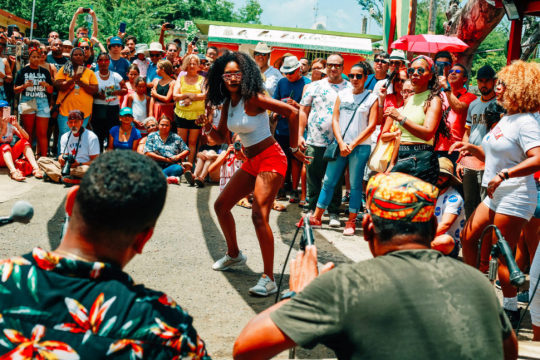
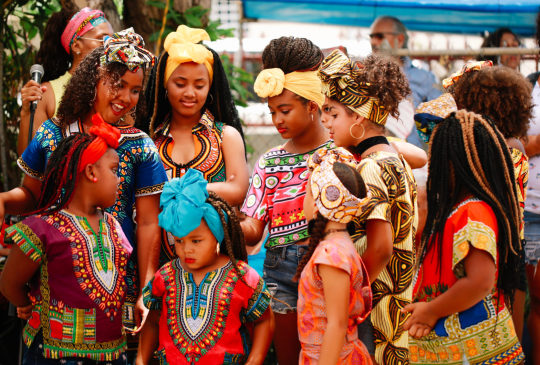

Loíza (Spanish pronunciation: [loˈisa]) is a town and municipality on the northeastern coast of Puerto Rico, north of Canóvanas; east of Carolina, Puerto Rico; and west of Río Grande, Puerto Rico. Loíza is spread over five barrios and Loíza Pueblo (the downtown area and the administrative center of the city). It is part of the San Juan-Caguas-Guaynabo Metropolitan Statistical Area. It is renowned for its rich Afro-Puerto Rican culture and heritage.

Some say its name comes from a female cacique, named Loaíza or Yuíza, who governed the region formerly called Haimanio, on the shores of the Río Grande de Loíza. It is said that this cacique might have married a mulatto conquistador called Pedro Mejías, but there is no evidence of this. Other sources point to a Spanish landlord named Iñigo López de Cervantes y Loayza, who owned a lot of the territory, and was renowned among governors and colonists of the time.
In 1692, Loíza was officially declared an urban area due to its population (100 houses and 1,146 residents), but it was in 1719 that the Spanish government declared it as an official town. It was founded by Gaspar de Arredondo.

Puerto Rico was ceded by Spain in the aftermath of the Spanish–American War under the terms of the Treaty of Paris of 1898 and became a territory of the United States. In 1899, the United States Department of War conducted a census of Puerto Rico finding that the population of Loíza was 12,522.

#african#afrakan#kemetic dreams#africans#brownskin#brown skin#afrakans#african culture#afrakan spirituality#afro rican#afro puerto rican#puerto rican#puerto rican goddess#boricua#dominican#hispanic#mexican#latina
61 notes
·
View notes
Text
People learn the difference between latino (from a Latin-American country) and hispanic (from a Spanish speaking country) challenge. Just because of how often they overlap doesn't mean they're the same thing.
#disney wish#wish#wish 2023#wish movie#asha#disney#(tagging this movie because of how many people say Asha's afro-latina when she's actually afro-hispanic)#(the movie takes place on an island near Spain and her mother is from north-Africa how in the hell does that make her latina...)#personal
74 notes
·
View notes
Text
Happy Hispanic Heritage Month!
🎊🇧🇷🎊🇲🇽🎊🇭🇹🎊🇵🇪🎊🇨🇷🎊
I hope all my Hispanic and Latina sisters are having a amazing day!
🎊🇨🇴🎊🇯🇲🎊🇨🇱🎊🇳🇮🎊🇨🇺🎊
To celebrate here is a collection of history facts that help to showcase are impact on history!
🎊🇦🇷🎊🇵🇦🎊🇭🇳🎊🇺🇾🎊🇻🇪🎊
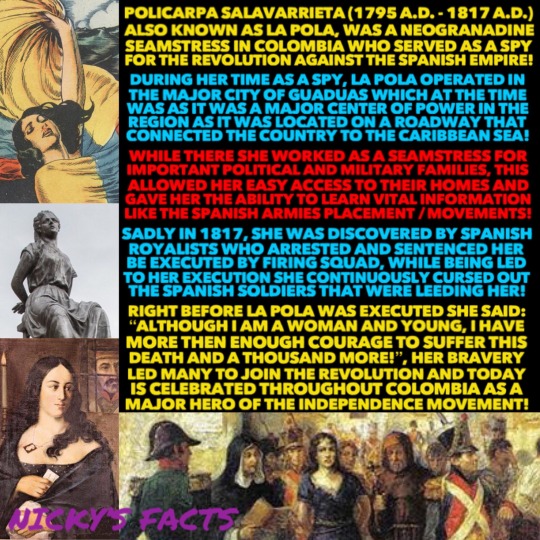
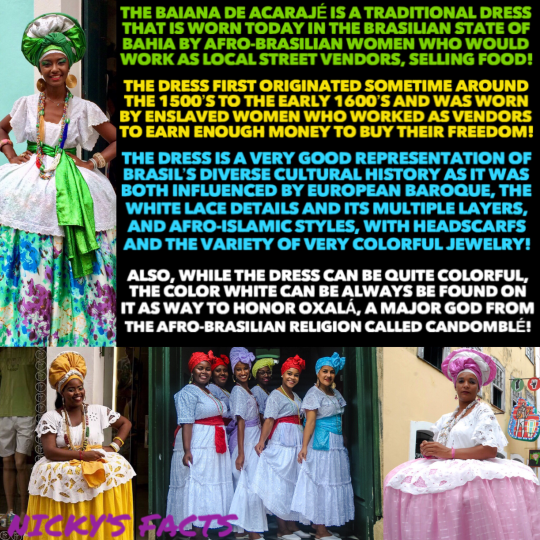


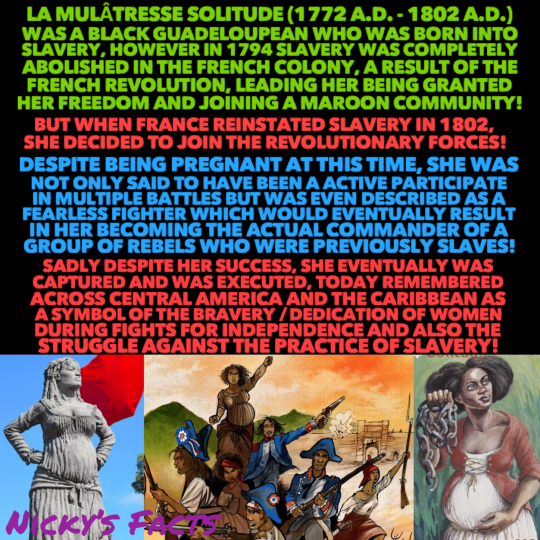
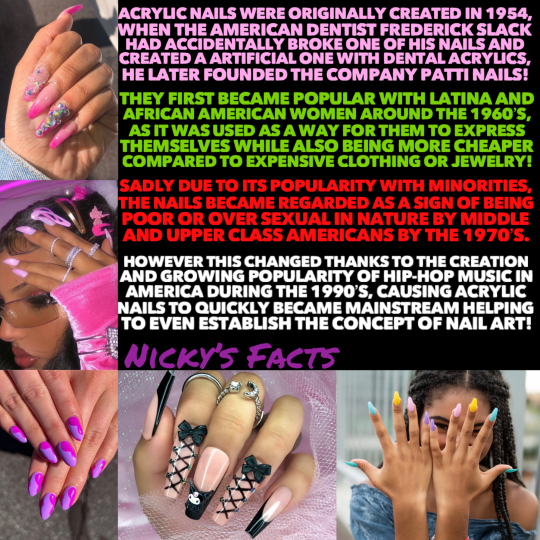
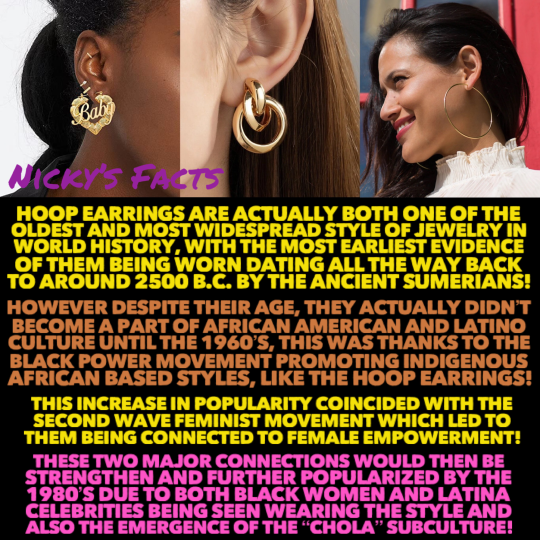
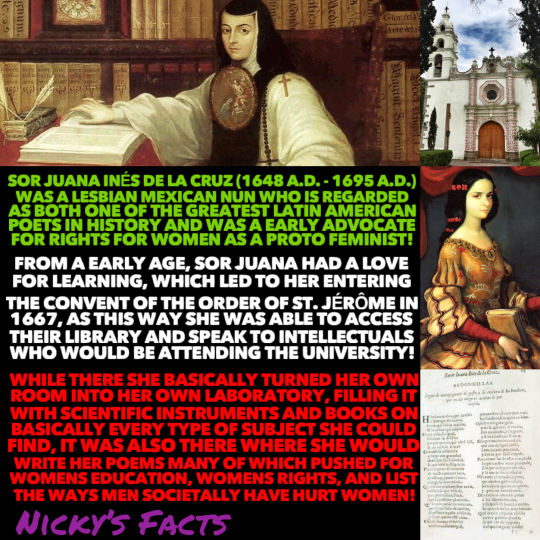

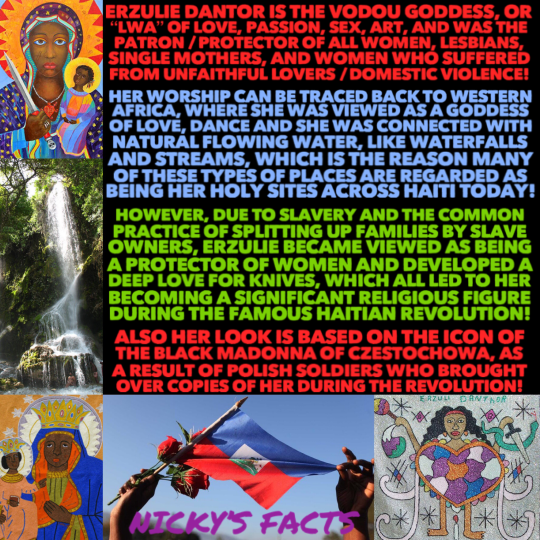
#history#hispanic heritage month#latin america#womens history#hispanic women#central america#south america#black girl magic#united states#latina#lgbt#sisterhood#afro latina#hispanic coquette#latina baddie#latin american history#girl blogger#women empowerment#nickys facts
83 notes
·
View notes
Text

15 notes
·
View notes
Text
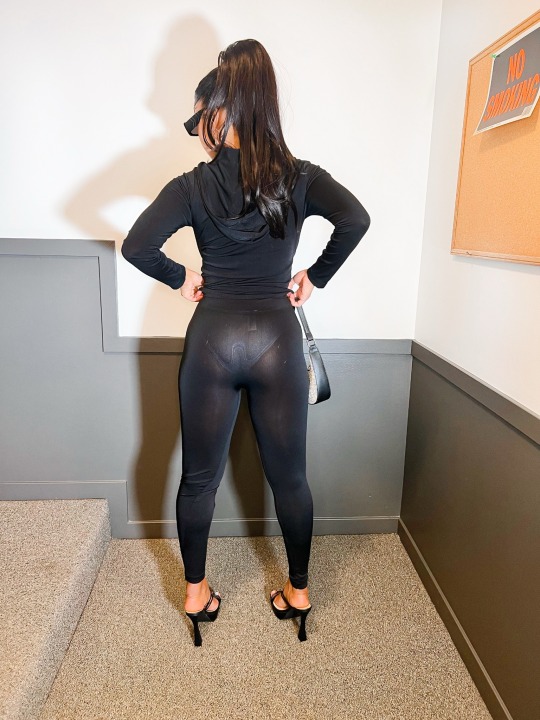




#black girl aesthetic#black girl luxury#black girl tumblr#black girls#Evannah V#evannahv#carribean women#hispanics#afro latino representation#moodboard#melanin#photography#black girl fitspo#y2k style#y2k#y2k aesthetic#muse#belizean
60 notes
·
View notes
Text

Love Masisi (Pierre Alexandre)
Gender: Non binary (they/them) (she/her in drag)
Sexuality: Queer
DOB: 9 July 1977
Ethnicity: Afro Haitian
Nationality: American
Occupation: Drag artist, reality star
#Love Masisi#Pierre Alexandre#qpoc#queerness#lgbtq#non binary#queer#1977#black#haitian#poc#afro carribean#caribbean#hispanic#drag artist#reality star
79 notes
·
View notes
Text
Black men: “l only date Latina women!”
Me: “I only date real men who know the difference between race, ethnicity, and nationality!!!” ☕️💅🏿

#black women#racism#misogynoir#anti blackness#black men#afro latina#black hispanics#non black latinas#white supremacy#race#ethnicity#nationality#why are these niggas like this#ignorance#stupidity
34 notes
·
View notes
Text
happy hispanic heritage month to all those who identify and celebrate the beautiful cultures of spanish speaking countries and communities!!
🇵🇷🇨🇷🇨🇴🇳🇮🇭🇳🇲🇽🇻🇪🇨🇱🇨🇺🇦🇷🇧🇴🇩🇴🇪🇨🇵🇪🇸🇻🇬🇹 🇵🇦🇵🇾🇪🇸🇺🇾 🇬🇶 (if i missed any flags, i’m sorry!)
shoutout to colombia because barriletes are so good!! 😭🇨🇴 it’s a sweet taffy like candy that tastes like bubblegum and they’re addictive. i 10/10 recommend it 🫶🏾🫶🏾
#hispanic heritage month#cuba#mexico#argentina#paraguay#uruguay#panama#equatorial guinea#colombia#puerto rico#costa rica#bolivia#venezuela#guatemala#honduras#ecuador#dominican republic#nicaragua#el salvador#peru#spain#chile#love yall#latina#latino#latin culture#afro latino representation#latino representation#latinx
12 notes
·
View notes
Note
Well i think i Understand what anon was trying to say, you see people call wish "Woke" cuz people think magnifico is in the right for not wanting to grant all wishes because they think that would be "Dangerous" not knowing that's not the real reason why magnifico doesn't grant most of the wishes in rosas, but magnifico stans make it seen that way, they push that false narrative about magnifico and asha, making people not want to see wish or give it a chance cuz its "just another woke movie" so yeah of course your completely valid to like a character but pushing false narrative to make asha look like the "real bad guy" knowing people already call it woke and are racist towards asha?! Yeah they kinda are killing wish😒
Oh don't get me wrong, it's absolutely annoying and completely exasperating to hear so many people going "B-B-But this good-looking white guy DILF can't possibly be the bad guy, he's just trying to protect his kingdom!!!! Can't you see that the teenage WOC who wants everyone to have free will is 'tHe ReAl BaD GuY' because some people might use their free will for BaAaAaD tHiNgS????"
Oh, right! It's a "woke" movie for *checks notes* featuring an Afro-Hispanic leading lady and confronting the idea of blindly believing in some higher power to give you direction in life. Gee, I wonder who would be offended by that *stares pointedly at most churches I've ever known.*
But still. The block button is there for your use, folks. You can use it whenever you want. You don't need to wait for some sign from the heavens or some greater reason. It's not going to get taken away from you and there's not a limit to how many people you can block. It's there and it's there to help curate your experience. You can block every one of these people if you want!
#i think afro-HISPANIC was what the writers meant; not afro-latina#because hispanic means related to spain/spanish-speaking countries and spain is in the iberian peninsula where they say rosas is#but i could be completely wrong on that. anyway#and of course asha's mother is north african and asha's hair is braided as a reference to the amazigh people her mother is said to be from#asha disney#princess asha#asha wish#wish 2023#wish movie#disney wish#wish disney#look i am not JUDGING the folks who like him because i like him too!#and i have several blorbos who are assholes making terrible choices#but the wish fandom has featured this woobification to an incredible distortion in my experience
23 notes
·
View notes
Text

#my posts#theblvcksupreme#body#posts#melanin#gay#lgbt#Hispanic#Latino#Afro#@luewellynn#luewellynn#tall#legs#gym#workout
11 notes
·
View notes
Text

The Invention of Hispanics: What It Says About the Politics of Race
America’s surging politics of victimhood and identitarian division did not emerge organically or inevitably, as many believe. Nor are these practices the result of irrepressible demands by minorities for recognition, or for redress of past wrongs, as we are constantly told. Those explanations are myths, spread by the activists, intellectuals, and philanthropists who set out deliberately, beginning at mid-century, to redefine our country. Their goal was mass mobilization for political ends, and one of their earliest targets was the Mexican-American community.
These activists strived purposefully to turn Americans of this community (who mostly resided in the Southwestern states) against their countrymen, teaching them first to see themselves as a racial minority and then to think of themselves as the core of a pan-ethnic victim group of “Hispanics”—a fabricated term with no basis in ethnicity, culture, or race.
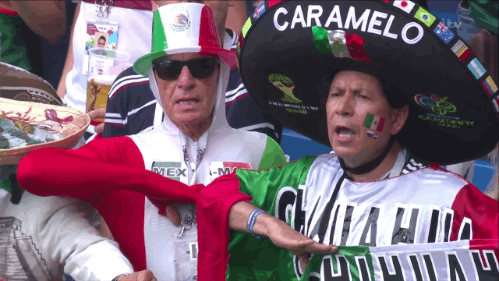
This transformation took effort—because many Mexican Americans had traditionally seen themselves as white. When the 1930 Census classified “Mexican American” as a race, leaders of the community protested vehemently and had the classification changed back to white in the very next census. The most prominent Mexican-American organization at the time—the patriotic, pro-assimilationist League of United Latin American Citizens (LULAC)—complained that declassifying Mexicans as white had been an attempt to “discriminate between the Mexicans themselves and other members of the white race, when in truth and fact we are not only a part and parcel but as well the sum and substance of the white race.”

Tracing their ancestry in part to the Spanish who conquered South and Central America, they regarded themselves as offshoots of white Europeans.
Such views may surprise readers today, but this was the way many Mexican Americans saw their race until mid-century. They had the law on their side: a federal district court ruled in In Re Ricardo Rodríguez (1896) that Mexican Americans were to be considered white for the purposes of citizenship concerns. And so as late as 1947, the judge in another federal case (Mendez v. Westminster) ruled that segregating Mexican-American students in remedial schools in Orange County was unconstitutional because it represented social disadvantage, not racial discrimination.
At that time Mexican Americans were as white before the law as they were in their own estimation.

The process would only work if Mexican Americans “accepted a disadvantaged minority status,” as sociologist G. Cristina Mora of U.C. Berkeley put it in her study, Making Hispanics (2014). But Mexican Americans themselves left no doubt that they did not feel like members of a collectively oppressed minority at all. As Skerry noted, “[the] race idea is somewhat at odds with the experience of Mexican Americans, over half of whom designate themselves racially as white.” Even in the early 1970s, according to Mora, many Mexican-American leaders retained the view that “persons of Latin American descent were quite diverse and would eventually assimilate and identify as white.” And yet “Spanish/Hispanic/Latino” is now a well-established ethnic category in the U.S. Census, and many who select it have been taught to see themselves as a victmized underclass. How did this happen?
In other words, a distinctive set of beliefs, customs, and habits supported the American political system. If the Cajun, the Dutch, the Spanish—and the Mexicans—were to be allowed into the councils of government, they would have to adopt these mores and abandon some of their own. It is hard to argue that this formula has failed. Writing in 2004, political scientist Samuel Huntington reminded us that
“Millions of immigrants and their children achieved wealth, power, and status in American society precisely because they assimilated themselves into the prevailing culture.”
Indeed, merely calling Mexican-Americans a ‘minority’ and implying that the population is the victim of prejudice and discrimination has caused irritation among many who prefer to believe themselves indistinguishable [from] white Americans…. [T]here are light-skinned Mexican-Americans who have never experienced the faintest…discrimination in public facilities, and many with ambiguous surnames have also escaped the experiences of the more conspicuous members of the group.”
Even worse, there was also “the inescapable fact that…even comparatively dark-skinned Mexicans…could get service even in the most discriminatory parts of Texas,” according to the report. These experiences, so different from those of Africans in the South or even parts of the North, had produced
a long and bitter controversy among middle-class Mexican Americans about defining the ethnic group as disadvantaged by any other criterion than individual failures. The recurring evidence that well-groomed and well-spoken Mexican Americans can receive normal treatment has continuously undermined either group or individual definition of the situation as one entailing discrimination.
It is incumbent on us to pause and note exactly what these UCLA researchers were bemoaning. Their own survey was revealing that Mexican-Americans’ lived experiences did not square with their being passive victims of invidious, structural discrimination, much less racial animus. They owned their own failures, which—their experience told them—were remediable through individual conduct, not mass mobilization. Their touchstones were individualism, personal responsibility, family, solidarity, and independence—all cherished by most Americans at the time, but anathema to the activists.
The study openly admitted that reclassification as a collective entity serves the “purposes of enabling one to see the group’s problems in the perspective of the problems of other groups.” The aim was to show “that Mexican Americans share with Negroes the disadvantages of poverty, economic insecurity and discrimination.” The same thing, however, could have been said in the late 1960s of the Scots-Irish in Appalachia or Italian Americans in the Bronx. But these experiences were not on the same level as the crushing and legal discrimination that African Americans had faced on a daily basis. That is why the survey respondents emphasized “the distinctiveness of Mexican Americans” from Africans and “the difference in the problems faced by the two groups.” The UCLA researchers came out pessimistic: Mexican Americans were “not yet easy to merge with the other large minorities in political coalition.”
Thereafter, militants from La Raza, MALDEF, and other organizations put pressure on the Census Bureau to create a Hispanic identity for the 1980 Census—in order, as Mora puts it, “to persuade them to classify ‘Hispanics’ as distinct from whites.”
The Hispanic category was a Frankenstein’s monster, an amalgam of disparate ethnic groups with precious little in common.
The 1970 Census had included an option to indicate that the respondent was “Mexican, Puerto Rican, Cuban, Central or South American, [or] Other Spanish.” But re-categorizing Mexican Americans and lumping them in with other residents of Latin American descent under a “Hispanic American” umbrella was a necessary move, Mora writes, because “this would best convey their national minority group status.”
The law states that “a large number of Americans of Spanish origin or descent suffer from racial, social, economic, and political discrimination and are denied the basic opportunities that they deserve as American citizens.” The very thing that defined Hispanics was victimhood.
IT IS SHOWN THAT THE HUMAN CATEGORY "WHITE" WAS BUILT UPON THE IDEA OF THAT BRITISH AS WHITE, CHRISTIAN, OF THEIR ESSENCE FREE,AND DESERVING OF RIGHTS AND PRIVILEGES FROM WHICH THOSE INSUFFICIENTLY BRITISH -LIKE COULD BE DENIED. JACQUELINE BATTALORA "BIRTH OF A WHITE NATION.
#hispanics#latina#afro latina#curvy latina#latin girls#latinx#sexy latina#thick latina#latino#kemetic dreams#brownskin#brown skin#mexican#mexicana#mexico#mexique#mextagram#white#black and white#white house#census data#censura#qsmp census bureau#u.s. census bureau#tumblr censure#the invention of the Hispanic#african#afrakan#afrakans#africans
75 notes
·
View notes